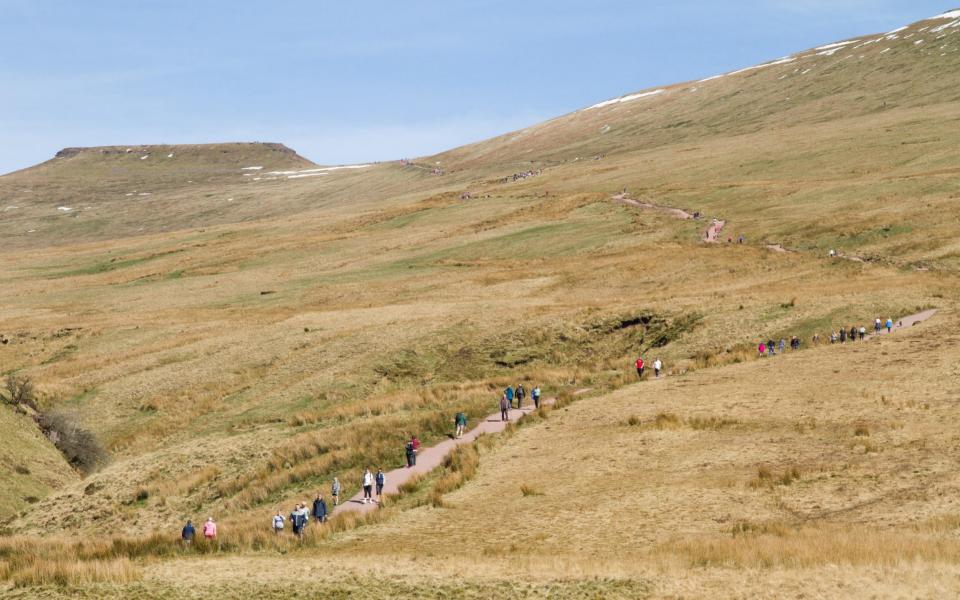Army reservists still at risk in SAS selection, Brecon Beacons inquiry finds

More Army reservists risk dying on SAS selection training because commanders are not getting them ready for the gruelling test, a military inquiry into the death of three soldiers on the Brecon Beacons has found.
Three part time soldiers who died of heat exhaustion after a mountain endurance march had not had enough training for the test and were not ready compared to regular Army comrades.
A sharply critical report by the Ministry of Defence’s safety watchdog also said the Army no longer has a clear idea of the role of special forces reservists and so cannot give them the right training.

Until generals have decided why they want SAS reservists, and what preparation they need, they “remain vulnerable to a further incident”.
The report also said special forces commanders were too overstretched to properly oversee training and had wrongly come to see the time trial marches over the Welsh mountains as routine.
The report by the Defence Safety Authority, said Britain’s special forces had “a high threshold for risk, an unquestioning culture and no independent challenge”, that meant they had “drifted towards failure” before the deadly march in July 2013.
L/Cpl Craig Roberts, 24, Trooper Edward Maher, 31, and Cpl James Dunsby, 31, all died after collapsing during a test march on the hottest day of that year.
The trio were among 37 reservists trying out for the SAS reserve units, and at the same time 41 regulars were trying out for 18 (UKSF) Signals Regt.
Air Marshal Dick Garwood, director general of the watchdog, said the three soldiers “were not trained and conditioned to the right level; neither did they have the experience to race the rigours of the test march”.
Air Marshal Garwood said reservists in 21 and 23 SAS had well defined jobs during the Cold War, but since then “the requirement for them appears to be less clear and more difficult to articulate”.
However reservists have continued to want the prestige of similar selection tests to regular 22 SAS soldiers and the hill test marches were seen as “non negotiable”.
He said: “Therefore, the appropriateness for the reserve units to conduct the test marches was never questioned and remained a legacy assumption regardless of the development of their role.”
A 2015 inquest into the deaths found there had been a “catalogue of very serious mistakes" before and during the march.
A coroner found the fatal march was blighted by inadequate planning and training and a “chaotic” response once soldiers began to fall ill.
Yet the safety watchdog report said the MoD had been slow to learn the lessons of the incident and had had more “near miss” heat exhaustion incidents since.
Air Marshal Garwood concluded: “It is my opinion that these reserves currently remain vulnerable to a further incident in the future”.
He said improvements would not happen until “the operational requirement and role for these units is clearly defined”.
Clare Stevens, a lawyer representing the father of Cpl James Dunsby, said: “The inquiry admits that information from previous training fatalities was not exploited, lessons were identified but not learnt and opportunities to improve procedures were missed.
“It points to serious failings. Almost four years on, they admit lessons are only just being learnt despite a number of ‘near misses’ in the intervening years. There is no reassurance that this will not happen again. This is just not acceptable.”
The Army said it had already acted on the recommendations made by the coroner.
An MOD spokesman said: “Our deepest sympathies remain with the families of all three soldiers and, with all the recommendations from this report having been or being addressed, we are committed to doing all we can to ensure such a tragic event cannot happen again.”

 Yahoo News
Yahoo News 
